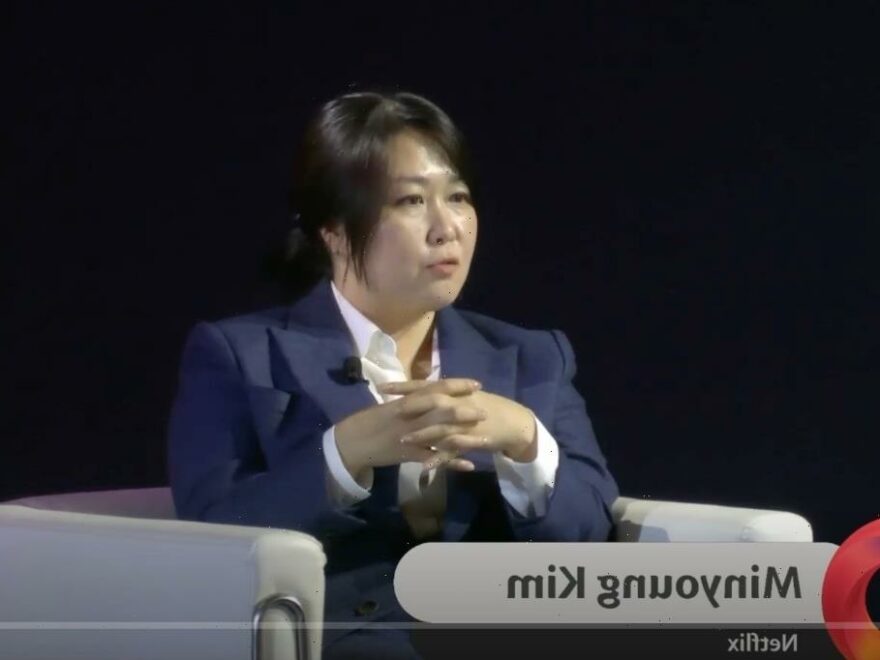Creating locally authentic content has been key to Netflix’s success in producing shows in Asia that have resonated globally, according to Minyoung Kim, Netflix Vice President of Content, APAC ex India, speaking at APOS, which is taking place virtually and in-person in Singapore this week (September 27-29).
Kim said she always believed that Asia would eventually produce a show that worked globally, but that “honestly” she had no idea it would be Squid Game or that it would happen so fast. “We truly believe that in making Korean content we need to prioritize our local audiences in Korea,” said Kim, speaking to Media Partners Asia executive director Vivek Couto on-stage at the event.
She added that audiences in Korea, Japan and India have all shown a preference for high-quality local content, so the streamer’s priority has been to create shows that work within the local market, rather than consciously striving for global success.
Related Story
APOS 2022: Amazon Prime Video International Chief Kelly Day On Growth Of AVOD, Expanding South Indian, Japanese Scripted Content
“When we first started in the region, a lot of our producers came to me with English-language bibles, saying Netflix is a global platform, and we need to make global shows from Korea and Japan. But with series like Kingdom, Squid Game and Alice In Borderland, they’ve realized they can make content in their own language, with everything they know and breathe, and that their local content can become a global show.”
Kim added that when Netflix first launched in the region in 2016, it had all its APAC content teams working out of Los Angeles, but quickly pivoted when it realized it needed to be much closer to local creative communities. “Building teams on the ground in Japan, Korea and India, and finding the best talent to communicate with that creative community, has been one of the most important decisions we ever made.”
In the process, Netflix has built relationships with local content creators including Korea’s Studio Dragon and JTBC and Japanese manga publisher Shueisha, with whom the streamer has produced upcoming anime series Romantic Killer. “Japan has a lot of great IP and a very loyal fanbase that loves that IP around the world. It’s important to us that we partner with players who’ve already had success in bringing those IPs to a global audience,” said Kim.
Kim added that Netflix is now building similar partnerships in Thailand and Indonesia, the next frontiers as the streamer pushes into the booming Southeast Asia market. She marked out Thailand as one territory with a particularly strong local production infrastructure.
“There’s a great production ecosystem that has been influenced by the inbound production that has come to Thailand,” Kim added. “The behind-the-scenes talent on the production side we can leverage for the overall Southeast Asia region and really start to innovate how we make shows.”
She also praised the quality of filmmakers in Indonesia, where Netflix recently announced a local slate with directors including Timo Tjahjanto, Joko Anwar and Kamila Andini. “It’s really about finding those talents and making sure we get them to tell the stories they weren’t able to tell before, and us being supportive in enabling them to fulfil the creative vision they have.”
Kim also acknowledged the complexities in producing Chinese-language content, which she described as being “as tricky as English content” in that many forms of Chinese are spoken across different territories – Hong Kong, Taiwan, mainland China and Southeast Asian countries – in the same way that cultural differences exist between content creators in the English-speaking world. “It’s really about figuring out who our core audience is when it comes to Chinese-language content, and what are the elements of each creative industry that we can bring in to create films or shows to bring to our audience.”
Another new frontier for Netflix in the region is expanding out of scripted content into new genres and formats. This has happened to some extent in Korea with reality show Single’s Inferno, and documentaries in a few territories, but Kim said would be happening much more: “Whereas in Korea, Japan and India we’ve been in those countries for a period of time and have been interacting with and communicating with our audiences, we want to diversify our offering and please different sets of members in countries around the world.”
Must Read Stories
Hugh Jackman Returning As Wolverine In ‘Deadpool 3’; Threequel Gets Release Date
Disney World, Universal & 80 Theaters Closing; Tampa Bay Halts Production
‘The Jeffrey Dahmer Story’ Locks Up Netflix’s Biggest Audience Since ‘Stranger Things’ Return
Bob Odenkirk To Star In & Co-Write ‘The Making Of Jesus Diabetes’ With ‘Always Sunny’ Duo
Read More About:
Source: Read Full Article




